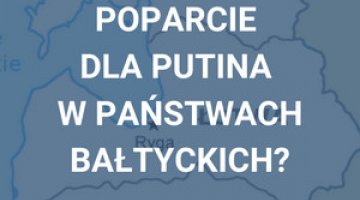Lithuanian will have a much greater share as the language of instruction at Polish schools in Lithuania
Lithuania’s Seimas amended the education act on 17 March despite continuing protests by minority organisations. The new regulations, starting as early as 1 September, will radically reduce the use of minority languages at non-Lithuanian schools, most of which are schools using Polish as the language of instruction. The amendment will lead to the liquidation of some schools. President Dalia Grybauskaitė has announced she will make her decision whether to sign this act dependent on the results of the comparison of the rules of operation for Lithuanian schools in Poland to the amended Lithuanian act.
The Polish minority in Lithuania have so far had the right to education in their native language from kindergarten to graduation from secondary school. Lithuanian has been a compulsory subject on the curriculum at Polish schools. Now children will start learning Lithuanian already in kindergarten. Aside from the compulsory Lithuanian language lessons, the language of instruction during classes dealing with history, geography, global affairs and formation of civic attitudes will be Lithuanian. Students from Lithuanian and Polish schools are to take the Lithuanian language examination upon secondary school graduation at the same level already in 2013 (so far, Polish students could take it at an easier level, which had a 91% pass rate).
If this act comes into force, schools where classes cannot be formed according to the standards set by the Ministry of Education – the same for both Lithuanian and Polish schools – will be liquidated. In effect, 60 of the 120 existing Polish schools (18,000 children attend them), mainly those operating in villages, could cease to exist. The amendment provides that if a Polish and a Lithuanian school exist in a given area where a complete set of students cannot be reached, only the Lithuanian school will continue operation. This will make Polish pupils attend schools where no Polish lessons will be provided at all. The final decision is up to President Dalia Grybauskaitė, who has promised to apply the principle of mutuality in her evaluation of the act: she will compare Polish education in Lithuania to Lithuanian education in Poland (which concerns as few as 670 pupils). She will veto the law if she finds that in effect of it Poles in Lithuania will have fewer rights than Lithuanians in Poland. The application of the mutuality criterion does not mean that the president is inclined to support the Polish minority’s requests, since Lithuanian schools in Poland are operating on the basis of regulations similar to those included in the recently amended Lithuanian law. Lithuanians in Poland have not protested against these regulations. <jhyn>





